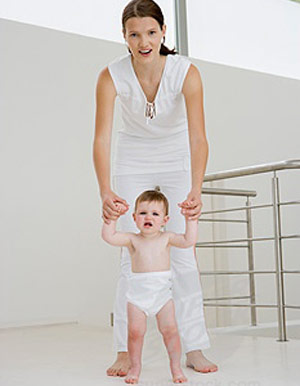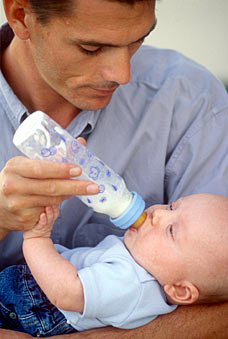You want your baby to have a head start in life, to be an interested learner who is full of curiosity. And there is no doubt that your baby’s development depends on the level of stimulation he receives at home. For instance, he is more likely to babble loudly if you speak to him, play with him, sing to him, and tell him stories in the early months in life. Likewise, he is more likely to show an interest in his surroundings if he is given exciting toys that will attract his attention. Your baby responds positively to this sort of stimulation — quite simply, it helps him thrive.
But finding the balance between too little, too much, and just the right amount can be difficult. Under-stimulation of your baby eventually causes him to be passive and lethargic — lack of toys, games, attention from parents, songs and other play activities has this effect. He quickly adjusts to the status of inactivity. And when he does receive stimulation, he doesn’t know how to react.

 If I had to describe my beloved
If I had to describe my beloved  she thrives and it also provides psychological comfort. You feel good inside when you see her take a “proper” feed. But the problem lies in not knowing when to stop, not (snowing how to ensure that your baby is not over-fed.
she thrives and it also provides psychological comfort. You feel good inside when you see her take a “proper” feed. But the problem lies in not knowing when to stop, not (snowing how to ensure that your baby is not over-fed. A woman who suffered an expat divorce is Helen, who discovered while they were in the process of moving to New Zealand a year ago that her husband was having an affair. “Our marriage broke down as soon as we arrived here. I discovered his infidelity and he left me completely helpless,” she remembers.
A woman who suffered an expat divorce is Helen, who discovered while they were in the process of moving to New Zealand a year ago that her husband was having an affair. “Our marriage broke down as soon as we arrived here. I discovered his infidelity and he left me completely helpless,” she remembers. Shortly after John’s
Shortly after John’s
 I can still remember the day that I delivered our adorable
I can still remember the day that I delivered our adorable My dad passed away and it’s almost 18 years now. Every year, whenever Father’s Day approaches, I tend to dismiss the feeling of despair by throwing myself into preparing a
My dad passed away and it’s almost 18 years now. Every year, whenever Father’s Day approaches, I tend to dismiss the feeling of despair by throwing myself into preparing a 

 Please come and
Please come and  If
If  Connie Parker, a full-time
Connie Parker, a full-time